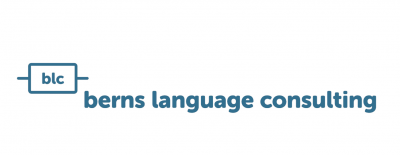We have heard it many times in customer projects and never tire of emphasizing it: Terminology alone is not enough! Texts will always need to undergo language quality assurance (LQA) and a terminology check. Only like this, terminology can be used in the first place. Similarly, it does not suffice to introduce LQA without clean terminology either.
LQA without Terminology?
Sure, you could introduce an LQA-tool like Acrolinx, Congree or [i]-Match without including any terminology. This way, you at least would have a grammar check of your texts. Furthermore, you could also implement style rules without terminology. But if the main problem is the inconsistency of corporate language and that different product names are used in different texts, an error-free text will not solve the problem.
Nor will introducing an LQA-tool and then quickly setting up a company-wide terminology, because terminology takes time. And requires structure. Often, several Excel lists are already circulating within companies. The central task of terminology management, however, is to unify the terminology of the different departments. To this end, setting up coordination processes in which department representatives can vote on new concepts and preferred terms is recommended. These terminology processes are then supplemented by targeted term extraction in order to continuously expand the existing terminology. The coordinated terminology is then made available throughout the whole company, ideally in a web-based manner.
So, if you would like to have an LQA-tool, but your terminology is not yet up to scratch, be sure to reserve time and capacity for getting your terminology up to speed first.
Terminology without LQA?
You already have a decent terminology database and feel great about it? Thumbs up! Then you have already taken the first step. But terminology without an LQA-tool only helps your translators for the time being (provided your terminology database is connected to your translation tool and made available to the translators). Your authors, on the other hand, still have to search for the right words manually. Still, the fact that they now have a dictionary to look up terminology is better than nothing – hence, you are allowed to feel great about it! 🙂 But are you sure, that your authors are actually searching for the right word? Or are they much more likely to take the more convenient route and decide on the word that just feels right to them?
With the help of an LQA-tool, your authors will no longer have to search for the right word during text creation. The tool lets them know when they are using the right or the wrong term. However, for this to work, your terminology needs to be properly maintained, complete, and well-structured.
Moreover: by using an LQA-tool, your authors are much more closely involved in terminology processes. They can suggest new terminology or submit proposals for changes to existing terms. On the one hand, this increases the acceptance of terminology within the whole company and, on the other hand, you can benefit directly from the expertise of your authors.
In a nutshell
Terminology and LQA are interrelated. One should not be implemented without the other. Yes, the investment and challenges of two “construction sites” can be daunting at first, but the investment will pay off. If you are unsure whether your terminology is ready for an LQA-tool or which LQA-tool best fits your processes, feel free to contact us. We will take a look with you at what you have, what you need, and how you’ll get it!





